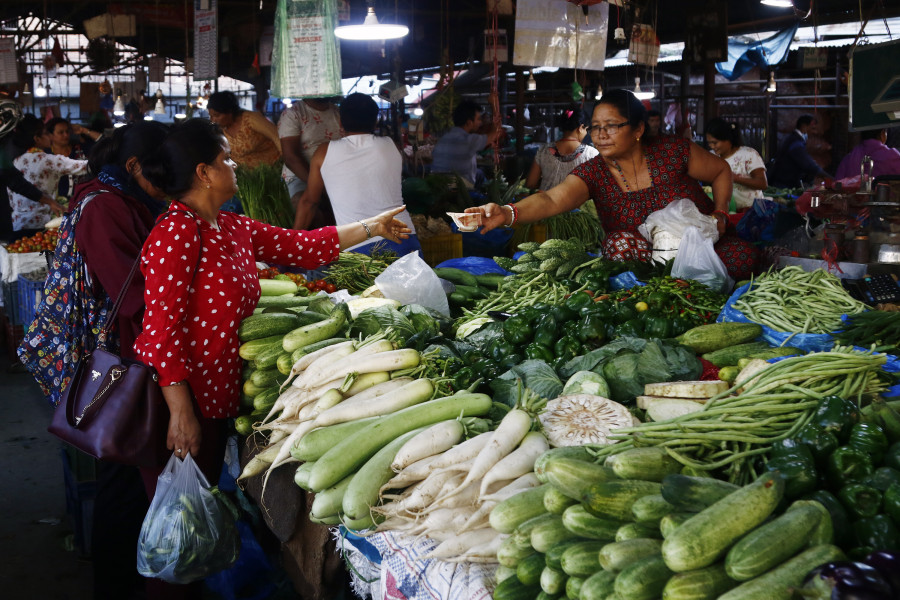Money
Fewer customers but no drop in business, say vegetable sellers
The Kalimati market is receiving 800-850 tonnes of vegetables daily, according to officials.
Krishana Prasain
But there has been no drop in business at the two largest produce bazaars in the Kathmandu Valley, they said.
Binaya Shrestha, deputy director of the Kalimati Fruits and Vegetable Market Development Board, said the crowds had thinned after the government published its health advisory on coronavirus, but sales were robust like at other times.
According to Shrestha, the market is receiving 800-850 tonnes of vegetables daily. Onion, potato and tomato come from India and seasonal vegetables from nearby districts. The supply of vegetables is normal and prices are stable, he added.
But the scene at the Balkhu market is a little different. Resham Tamang, administrator of the Balkhu Agriculture Vegetables Market, said that sales were down about 30 percent with hordes of temporary residents returning home.
Business could drop further with the government telling people to stay away from crowds, and schools and colleges shutting down.
Balkhu Agriculture and Vegetable Market receives 400-600 tonnes of vegetables daily from India and adjoining districts.
On Wednesday, Minister of Industry, Commerce and Supplies Lekh Raj Bhatta had gone on a tour of inspection at the Kalimati market posing as an ordinary customer.
Speaking to the media on Thursday, he said that Chinese apple and garlic had become slightly dearer as shipments from China had slowed. He said Chinese apple cost Rs370-400 per kg and garlic Rs400 per kg. The supply and prices of other vegetables are normal, he added.
On Thursday, tomato big and small were selling for Rs75 and Rs55 per kg respectively. Potato red was priced at Rs45 per kg and Indian onion dry at Rs75 per kg.
Cabbage cost Rs35 per kg, local cauliflower Rs45 per kg, French bean Rs65 per kg, squash Rs35 per kg, leaf mushroom Rs95 per kg and broccoli Rs65 per kg.
Bhatta said his ministry had been coordinating with the Home, Agriculture and Health ministries and the Drug Administration and Commerce departments to conduct effective market inspection.
In order to remove public concerns about possible shortages and price hikes, state-owned Food Management and Trading Company and Salt Trading Corporation will operate grocery stores at Satungal, Kalimati, Koteshwor, Bhaktapur and Banepa which will provide food and non-food items at reasonable prices, officials said.
Kumar Rajbhandari, assistant general manager of Salt Trading Corporation, said they planned to open another grocery shop at Jawalakhel.
According to Rajbhandari, there are sufficient stocks of food items like rice, lentils, legumes, edible oil, salt, sugar, flour and sugar at all corporation outlets, and they are reasonably priced.
The corporation is in talks with Dairy Development Corporation to sell its products from these outlets, he added.




 9.7°C Kathmandu
9.7°C Kathmandu















